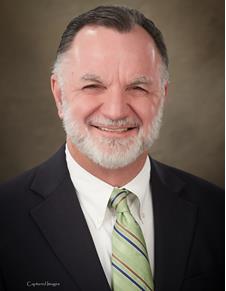Community College
James Fallows, a freelance writer, became curious about the demise of small towns; so, in 2013, he and his wife, Deborah, traveled over 100,000 miles around America to find out the common factors of communities that are succeeding despite the trends. They wrote about it in a book entitled, Our Towns (thank you to Rick Mayhew for sending me a copy), which was turned into a documentary by HBO, and summarized in an article published by Atlantic Monthly magazine.
Number seven on their list of 11 common attributes of thriving small towns is their support of a community college. These resources are efficient, effective, and extremely accessible to our children and grandchildren in rural America; it certainly gives us a better chance to keep them here and slow the “brain drain” crippling many small towns. Beyond the positive influence on our youth (and some adults), what is the economic impact of Fort Scott Community College (“FSCC”) on Bourbon County? Here are some numbers:
- Total revenue for all sources in fiscal year 2021 was $13.2 million, expected to increase to $14.4 million in 2022.
- Total student income was $5.2 million in 2021; that budgeted number is $6.1 million for 2022.
- FSCC employs 170 individuals, 119 of which live in Bourbon County; annual net wages for our county residents total $3.2 million.
- FSCC does business locally whenever possible, patronizing 82 Bourbon County businesses with close to $1 million in spending in 2021.
- Tuition waivers totaling $76,668 were awarded to 127 Bourbon County residents in 2021.
- FSCC students volunteer about 6,000 hours of community service to Bourbon County over the course of a school year. I know dozens of them showed up for the recent downtown Fort Scott cleanup.
These are significant contributions to our community, all accomplished while avoiding a mill levy increase since 2012. In 2013, the levy was 29.519, and was budgeted at 29.299 in 2022. Given the steady increase in costs to run any organization over that same time period, one can only conclude that FSCC is run on a financially sound basis.
As with all political entities, there is going to be significant disagreement over how they are run and how the money is spent, but no one can deny that we much better off with FSCC. Having lived in a rural Kansas county that tried and failed to attract a community college, I can tell you that we are envied. Four of my 11 grandchildren live in or around Bourbon County and may attend FSCC, but either way, I am happy to pay a little higher taxes in exchange for the all-around economic impact to our community. It is a must for site selectors who are considering locating a new business in rural counties.
You may be focused on the imperfections of FSCC, but I encourage you to consider the economic and academic treasure it is for Bourbon County. We would be a much poorer place without it.

If FSCC is generating so much revenue, why are they requiring me to pay them THOUSANDS every year in property taxes? I don’t attend it, my kids don’t attend it, I have no use for it at all. I’m not saying it isn’t an asset to our community, just saying I’m sick of paying for yet another entity that I have no use for
Concerned,
The real estate market is as hot as it’s ever going to get – have you considered listing your home? You could probably make a solid profit (particularly if your valuation has you paying thousands in property taxes every year), and it would be more productive that complaining anonymously on the internet month in and month out.
Additionally, Linn County and Cherokee County have the lowest property taxes in SEK and no community college. Of course, MO property taxes are much lower than KS.
Bill Gates, through the Gates Foundation, has developed an interest in promoting community colleges. When a guy that smart is looking into it there must be something to it. Over the years Fort Scott has seen a lot of businesses disappear from the landscape. FSCC celebrated their 100th anniversary and has been a reliable constant during those 100 years of change in the town. It will have to change and adapt but it should be able to do so – with the support of the town.